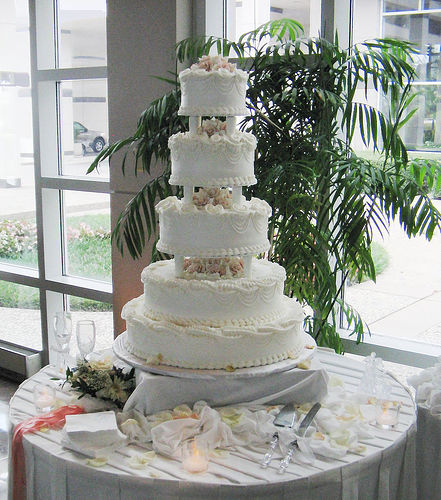Additionally, going crazy over money is something I feel like many people feel while planning a wedding. And yet, it still seems that the industry completely overprices everything. We have been looking at tablecloths and napkins, since our synagogue doesn't provide, and these things cost a lot more than expected. Also, every little thing, like favors, or printed goods, or centerpieces, or even the cake have extra expenses, regardless of how small you do them.
It's times like these when I ask myself, why are we making such a big party? I have been thinking that the ceremony is for Emet and me and the reception is really for everyone else. For some time now, I feel like the intentionality of the ceremony will be more meaningful to me than the reception, but really, I don't think that's true at all.
Celebrating with Emet and our family and friends is completely worth it. We are going to have an incredibly meaningful ceremony, and we are also going to have a kick-ass party. It's just a matter of priorities. We know we want to have an awesome wedding with our friends and family, and we know we don't want to spend over a certain amount of money, so while our parents are encouraging us on this or that, we know when to say No. We also know when to say Yes.
 |
| This is a cake we are NOT having....From WD4U |
We have been cognizant of managing how we are spending money, through maintaining a budget and changing it as we find out the real cost of things. We have negotiated a lot with vendors, and this has saved us tons. We've decided what is truly important to us and what isn't, what we can do alternatively and what we are cutting altogether. Still, even though I see a big number at the end, it's going to be worth it in the end. If I keep the end goal in mind - celebrating with all the people I want to be there - then I know that it will be okay!



